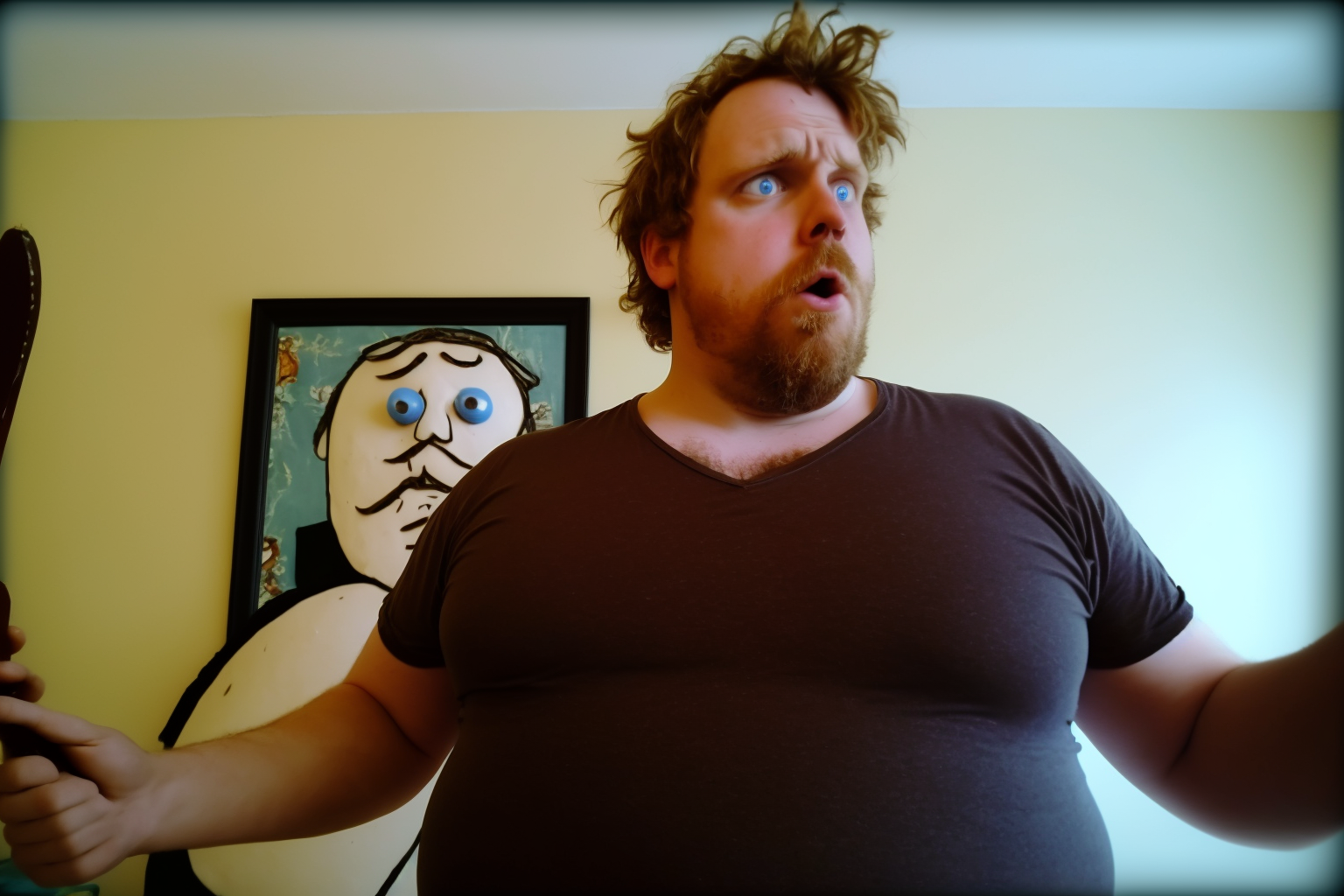My prescription for Effexor, an antidepressant, arrived by mail.
But by the time it arrived, I already knew I wasn’t interested in taking the medication.
After I researched the drug, I determined that weight gain was one of its many potential side effects.
Granted, that side effect was not reported in the drug’s clinical trials. But a later study—a small study with 362 participants—found that long-term use of newer antidepressants, including Effexor, was linked to weight gain.
No thank you, I said to myself, upon reading the summary of that study.
Back in the mid-2000s, I gained 25 pounds within about three months of starting Paxil. My diet and exercise habits did not change during that time period.
The drug made me fat.
A little happier, sure, but fat.
And at 38, I wasn’t willing to trade my reasonable physique (no six pack, but no dad bod either) for a little extra supply of happiness.

I knew a dad bod would make me depressed. I’m still looking for a mate, and with a shitty job and self-esteem issues a whole host of other factors working against me, I knew I couldn’t risk letting myself go physically in order to correct my chemical imbalance.
An Awkward Therapy Session
Somehow I knew that my online therapist, Dr. Samuelson, wouldn’t appreciate my questioning her prescriptive expertise.
Our therapy session was scheduled to last for 15 minutes (she was only medication manager, after all).
Two weeks earlier, she’d assured me that Effexor wasn’t known to cause weight gain. And I had to tell her I wasn’t interested in taking the drug because I’d concluded, based on my research as an average moron with no medical background, that I thought she might be mistaken.
“Effexor is not associated with weight gain,” she stated once more, for the record.
“I know it’s not linked to weight gain like some of the other SSRIs, like Paxil, but I saw a study and other anecdotal reports that indicated it might cause weight gain.”
“Where did you see study?”
“It was on the National Library of Medicine website.”
She reviewed the study synopsis, noted that it only had 362 participants, and then said, “That’s a small study.”
“I know, but that’s just something I’m not willing to risk—developing a dad bod.”
“You don’t look like you have a dad bod.”
“Not now. But if you were to add a dad bod to my list of problems, I think it’d be over for me.”
“It’s not all about appearances. People should want to date you based on your personality.”
“I agree it should be like that. But in my experience, that’s not the reality.”

“Okay,” Dr. Samuelson responded. “But I’m telling you as a doctor, I have not noticed weight gain as a side effect of Effexor with my patients, and I’ve prescribed Effexor to hundreds of people. Would you be willing to reconsider your position?”
I Paused to Ponder Her Question….
Then I responded, “No, I’m just comfortable taking that particular medication. What about doing a Wellbutrin or something like that instead?”
“Wellbutrin causes anxiety,” she said, shaking her head, with more than a hint of frustration in her voice.
“Does it cause anxiety or is that just a potential side effect?”
“It’s a common side effect, especially for people who are prone to anxiety.”
“Well, I have the hydroxyzine to help with the anxiety, and I’d stop taking the Wellbutrin if it were to make me too anxious.”
“If you wanna try Wellbutrin, we’ll try it.”
A Last Request…
I liked the antianxiety medication she’d prescribed for me in our last session, Hydroxyzine, but it caused some lethargy, and I was hoping to add another antianxiety medication to my treatment program. Propranolol is a beta blocker that’s known to address the physical symptoms of anxiety without any sedating effects.
The hydroxyzine was effective at night, when I experience my most severe anxiety symptoms, but I wanted something I could take during that day that wouldn’t affect my cognitive functioning. I asked Dr. Samuelson if I could try Propranolol as a “daytime anxiety med” of sorts.
“No, we’ll stick with the hydroxyzine for now,” she said swiftly. “And we’re out of time. Let’s follow up in two weeks.”
Yeah, or let’s not and say we did, I thought to myself—and not because she rejected my medication request. I just thought she was kind of…unpleasant and condescending.
It’s my body. She should have respected my wishes when I told her I didn’t want to take the Effexor rather than patronized me.
End session, I clicked on the app. And a little later that afternoon, I began searching for a new psychiatrist.
Next: Therapy Journal 5 – “A Surprise Diagnosis.”
Previous: Therapy Journal 3 – “Your Book Sounds Interesting.”
Go to the Beginning: Journal 1 – “Broke, Miserable, and Alone”

R. Ross Horton is a writer, editor, and musician based in Palm Coast, FL. Last year he published his first book, Love Songs and Suicide: A Travel Memoir, Romance, and Tragic Musical Comedy. At Lovesong.blog, Ross strives to help people find harmony in a chaotic world. Visit this website’s about page to learn more.

